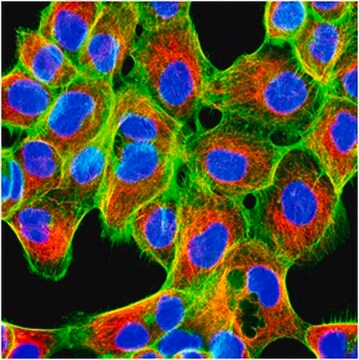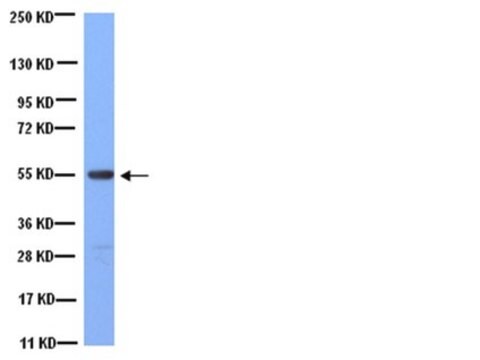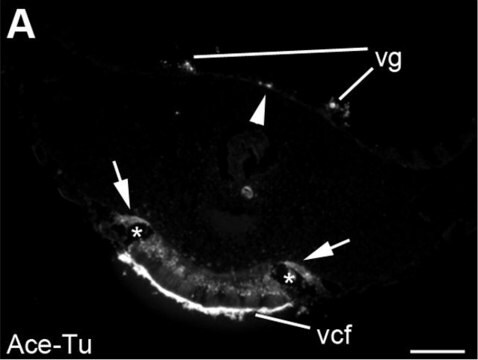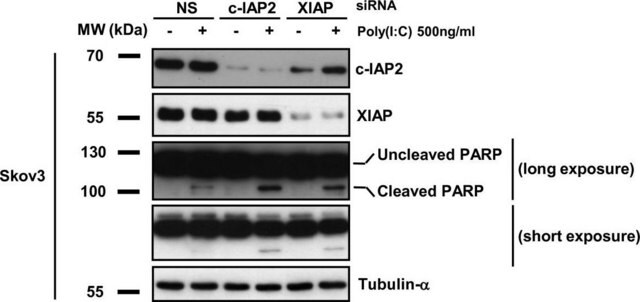SAB4200776
Anti-Tubulin, Tyrosine antibody, Mouse monoclonal
clone TUB-1A2, purified from hybridoma cell culture
Sinónimos:
Tubulin Alpha-1 Chain
About This Item
Productos recomendados
biological source
mouse
Quality Level
antibody form
purified from hybridoma cell culture
antibody product type
primary antibodies
clone
TUB-1A2, monoclonal
form
buffered aqueous solution
mol wt
~55 kDa
species reactivity
Xenopus, Arabidopsis sp., yeast, insect, rat, hamster, porcine, monkey, bovine, human, mouse, canine, chicken
concentration
~1 mg/mL
technique(s)
immunoblotting: suitable
immunofluorescence: 2-4 μg/mL using human HeLa or Chicken fibroblast cells
immunohistochemistry: suitable
isotype
IgG3
UniProt accession no.
shipped in
dry ice
storage temp.
−20°C
target post-translational modification
unmodified
Gene Information
human ... TUBA1A(7846)
General description
Specificity
Immunogen
Application
- immunoblotting
- immunofluorescence
- immunohistochemistry
Biochem/physiol Actions
Physical form
Storage and Stability
Disclaimer
¿No encuentra el producto adecuado?
Pruebe nuestro Herramienta de selección de productos.
Storage Class
12 - Non Combustible Liquids
wgk_germany
WGK 1
flash_point_f
Not applicable
flash_point_c
Not applicable
Elija entre una de las versiones más recientes:
Certificados de análisis (COA)
¿No ve la versión correcta?
Si necesita una versión concreta, puede buscar un certificado específico por el número de lote.
¿Ya tiene este producto?
Encuentre la documentación para los productos que ha comprado recientemente en la Biblioteca de documentos.
Nuestro equipo de científicos tiene experiencia en todas las áreas de investigación: Ciencias de la vida, Ciencia de los materiales, Síntesis química, Cromatografía, Analítica y muchas otras.
Póngase en contacto con el Servicio técnico







